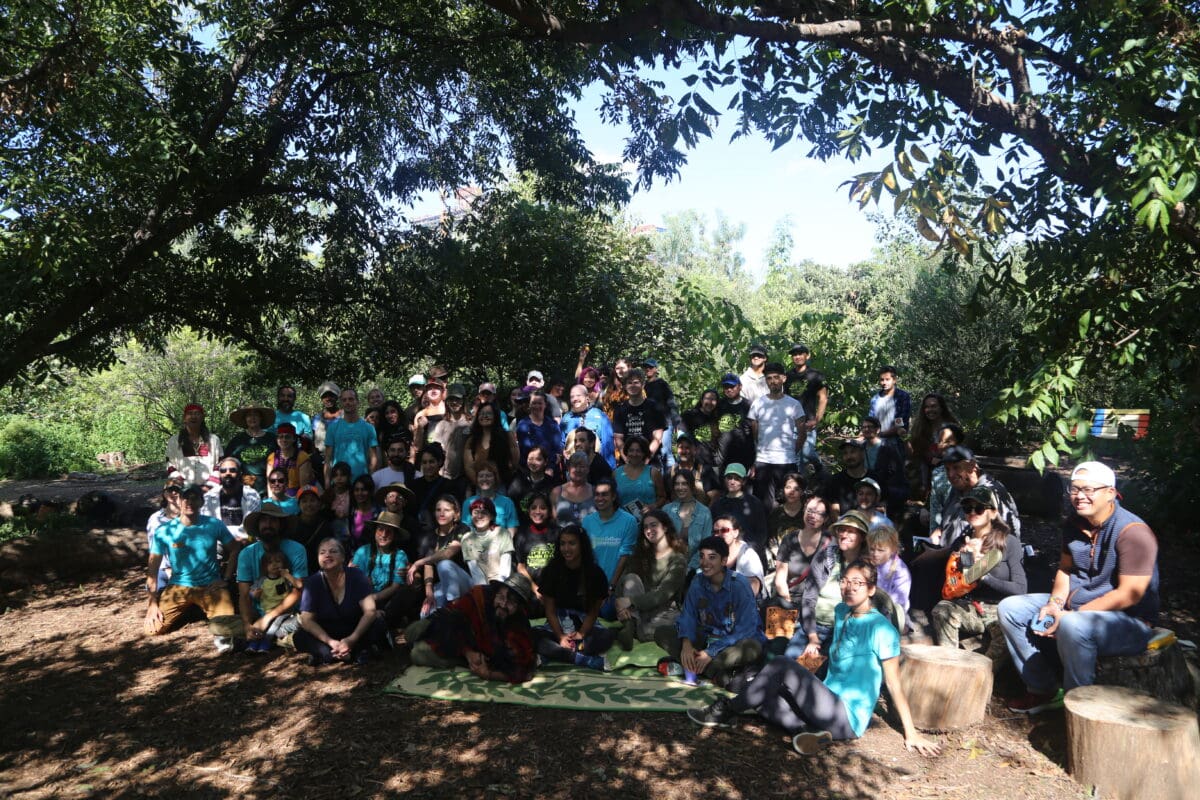
Food Equity and Health
Bachelor of Science
Impact individuals and communities and
address inequalities in nutrition and health.
Learn how to tackle global malnutrition and promote food equity and health for all with a BS in Food Equity and Health. With malnutrition affecting every nation and exacerbated by dietary factors and climate change, there's an urgent need for professionals dedicated to creating healthier food systems. Be a catalyst for change in promoting healthier eating habits and improving public health outcomes.
Program Overview
The Food Equity and Health program focuses on the various factors and conditions that influence people's food choices, eating habits, and overall dietary patterns. It examines the interaction between individuals and their surroundings, which can include physical, social, economic, and policy-related aspects. It brings together elements from geography, nutrition, public health, sociology, economics, and other disciplines to enable learners to develop a comprehensive understanding of how the environment in which people live affects their relationship with food.
Professionals in the field of food equity and health aim to identify strategies and policies that can promote food security as well as healthier and more sustainable food environments. Graduates of this broad-based degree program will be prepared for a variety of careers and/or further study in sustainable food systems or public health and nutrition.
Career Outlook
Earn your degree.
Unlock new opportunities.
Dietitians and Nutritionists jobs in the U.S., 2022.
Dietitians and Nutritionists average pay, 2022.
Projected growth for Dietitians and Nutritionists jobs through 2032.
Dietitians and Nutritionists jobs in the U.S., 2022.
Dietitians and Nutritionists average pay, 2022.
Projected growth for Dietitians and Nutritionists jobs through 2032.
*Source: O*Net.org/BLS.gov. Unity Environmental University cannot guarantee employment. Salary data represents averaged earnings for the occupations listed and includes workers at all levels of education and experience.
Experiential and Immersive Coursework

NGO Project Design & Fundraising
This course empowers students with the skills necessary to proficiently conceptualize, plan, and execute projects. It imparts strategic expertise, encompassing the creation of compelling project proposals, identification of funding sources, and mastery of effective fundraising techniques. Students acquire the ability to structure grant proposals, defining objectives, goals, deliverables, and establishing metrics and milestones. Additionally, the course instructs students on researching grant opportunities and identifying diverse funding sources. By navigating the dynamic project management landscape, students learn to translate vision into tangible impact.

Public Health Nutrition
This course offers a comprehensive examination of the intricate interplay between nutrition and public health. It delves into fundamental aspects of nutrition science, epidemiology, and health promotion strategies. Special focus is given to understanding the determinants of dietary choices in welfare-reliant communities and how these patterns impact community health, addressing prevalent issues such as malnutrition and chronic diseases. Students gain practical skills in designing targeted interventions for diverse populations, fostering sustainable health outcomes. Equipping learners with knowledge and tools, the course empowers them to make a meaningful impact on public health through sustainable nutrition and food system interventions.

Building and Sustaining Urban Food Forests
This course offers an in-depth exploration of the dynamic landscape of urban food forests in the United States. Emphasizing the historical evolution, development, and broader implications of these ecosystems, learners engage in a comprehensive study. The course project encourages learners to devise and evaluate strategies aimed at enriching the sociocultural and economic contributions of a specific food forest within a designated location.
Degree Requirements and Courses
The BS in Food Equity and Health degree requires 120 credits. You may transfer in up to 90 credits from outside institutions. View our full course catalog for a better look into your program. Then apply online for free to get started.
Frequently Asked Questions
-
What is Food Equity and Health?
Food equity and health refers to ensuring that all individuals, regardless of socioeconomic factors, have access to nutritious and affordable food, promoting well-being and addressing disparities. It encompasses a holistic approach to food systems, acknowledging the interconnected environmental, social, and health aspects. Food health involves understanding the impact of nutrition on individual and community well-being, addressing nutritional disparities based on factors like income and race.
Food equity focuses on rectifying systemic issues in the food system, advocating for fairness, inclusivity, and accessibility in food distribution. It is a commitment to creating a socially just society where everyone has equal opportunities to lead a healthy life through sustainable and equitable food practices. -
What courses will I be taking?
General Education Core: 28 credits
Environmental Professional Core: 13 credits
Elective Courses: 37 credits
Program Core: 42 credits- COMM 401 Using Social Media in a Global World
- ENVJ 307 Food Systems and Social Justice
- ENVS 303 Social Science for Environmental Professionals
- EVHW 105 Introduction to Human Health
- ENCJ 305 Natural Resource Law and Policy
- EVHW 205 Health Literacy and Promotion for Leaders
- EVHW 405 Health Coaching: How to Live a Balanced Life
- EVHW 410 Worksite Health Environment and Management
- FOOD 310 NGO Project Design and Fundraising
- FOOD 410 Public Health Nutrition
- MATH 201 Statistics for Environmental Professionals
- MGMT 301 Starting Your Small Non-Profit
- MGMT 393 Strategic Management for Social Change
- PSYC 101 Introduction to Psychology
- SUST 401 Building and Sustaining Urban Food Forests
For course requirements and a better look into your program, view our full course catalog. Then apply online for free to get started.
-
How much does it cost?
Your online education should be affordable and manageable. Thanks to our promise to keep tuition flat through 2030, you won’t be burdened with unexpected increases or fees.
Our team of distance education concierges will work with you through the admissions process to help you plan and pay for your degree. Learn more about the costs here. -
How fast can I finish?
Our comprehensive 120-credit program can be tailored to fit your schedule and goals! Completion time is flexible, determined by the number of credits you choose to take each term (8 terms/year) and less time with transfer credits. Without transfer credits, you can anticipate the following completion times:
- 24 credits/year: Complete in 5 years, if that’s your preferred pace!
- 30 credits/year: Achieve your degree in 4 years
- 48 credits/year: Fast-track your education in only 2.6 years
Program Features
High Value Education: Nationally recognized for the quality of our programs delivered at an affordable price.
Social Mobility: Unity ranks in the top 2% of colleges in the U.S. for fostering upward mobility.
Sustainability Core: All programs are committed to sustainable practices, preparing you for a future of environmental awareness in all fields.
Flexible Learning: Balance work and education effortlessly by choosing when and where you want to study.
Flexible Start Dates: 8 start dates per year allows you to control your schedule
Personalized Guidance: Benefit from individualized academic and professional advising, where we are dedicated to turning your career and academic aspirations into tangible achievements.
Transfer-Friendly: Shorten your academic timeline, since we accept up to 90 credits to value your prior academic achievements.
Experts in the Field
At Unity Environmental University, our faculty is composed of a wide range of environmental science experts who in addition to teaching, conduct their own research and various fieldwork.

Dr. Sebastian Kretschmer
Subject Matter Expert
Dr. Sebastian Kretschmer is your passport to the future of sustainable food! As the Director of Sustainable Food Systems & Food Science Programs at Unity, he's not just an educator; he's a changemaker. With a career dedicated to transforming food systems globally, Dr. Kretschmer's impact goes beyond the classroom.
A founding member of the UN Sustainable Food Systems Program, he's been at the forefront of sustainable nutrition, food science, and regenerative farming. Awarded over $3M in grants, his research drives change in food systems. Join Dr. Kretschmer at Unity and embark on a journey where your passion for sustainability meets world-changing education.











